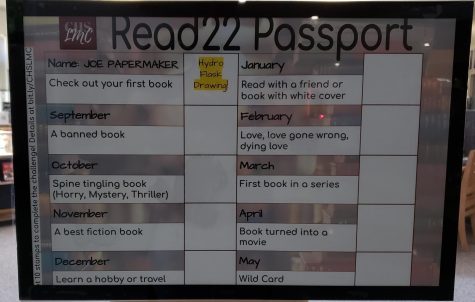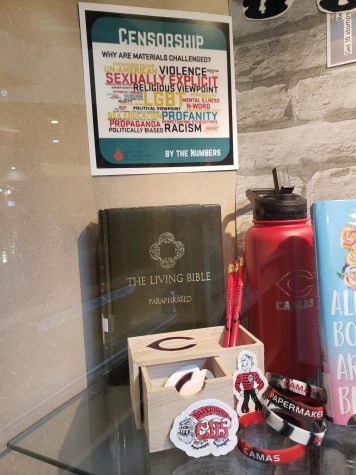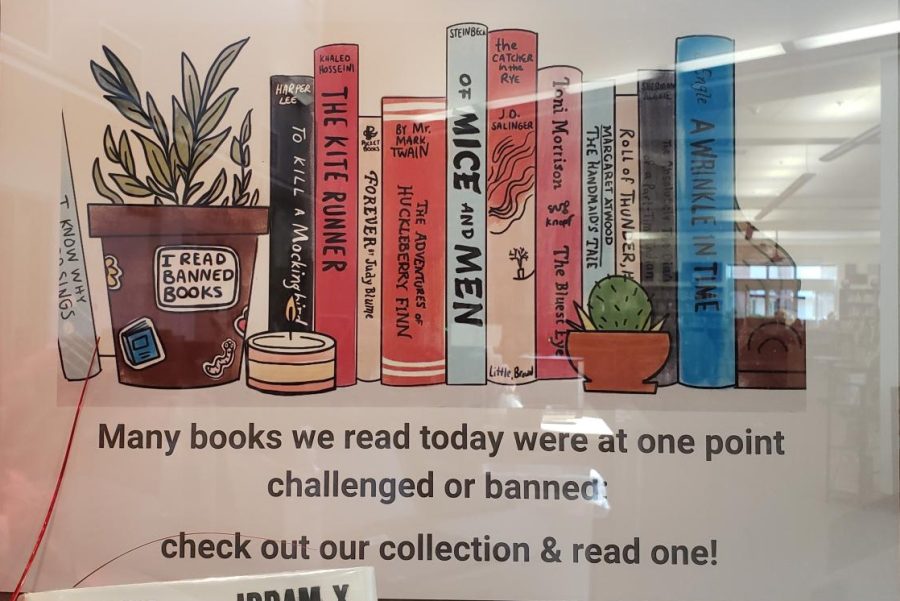September Reading Challenge: Banned Books
September 28, 2022
The beginning of the school year at Camas High School (CHS) thus far has been marked by noticeable change compared to previous years, particularly in regards to its administration and functioning without the impediments of Covid-19.
However, among the measures which have remained the same, the CHS library is presenting its second consecutive annual reading challenge, meant to incentivize students to read more. During the month of September, students will be encouraged to read books which have been either challenged or banned altogether at some point in American schools.
September 18 to September 24 is the American Library Association’s annual effort to preserve books that have been, or continue to be threatened by deletion. The list is longer than many students might imagine, and includes many unexpected names.

“Most of the books we read in our English classes have been challenged at some point.” said teacher-librarian Tonia Albert.
Staples in the CHS English curriculum like the recent The Hate U Give by Angie Thomas, The Great Gatsby by F. Scott Fitzgerald, William Golding’s The Lord of the Flies, and To Kill A Mockingbird by Harper Lee, the latter even having been banned within Washington State over its portrayal of racism from the time in which the book was released.
Other notable works which have been challenged include some of the most influential in literature, such as The Hobbit by J.R.R Tolkien and 1984 by George Orwell, which have been banned for their controversial topics, whether it be due to backlash from religious groups or political conflict.

“Offensive language, profanity, political or religious viewpoints, being sexually explicit, are all reasons they might have been challenged at some point.” Albert said.
The debate over what is acceptable or not is not so easily determined, and depends on administration and, sometimes, even the student.
“If it’s a book that’s intended simply to cause hate or something then yes, banning it can be okay.” said junior John Staddon. “A lot of books that have been banned before or even face banning right now are just controversial, and not necessarily hate-filled.”
The borders of what is tolerated also have a tendency to change, adjusting to the climate of the time.
“I think it changes over the years as to what our society considers profane or too explicit.” Albert said.
Though book bannings are often meant to remove literature, sometimes an unintended effect is even more publicity to the texts in question.
“Coming from the perspective of a young kid, if someone says that a book is banned, it just makes me want to read it more. Like, ‘what about it makes it banned?’” said junior Shiven Friedeman.
By familiarizing themselves with books that are under attack, students may be able to prevent books from being removed from their schools.
“We provide a huge variety, and then students can make their own choices on what they would like to read.” Albert said.
Reading different types of books, even controversial ones, can contribute to a reader’s individual growth, which the library’s reading challenge intends to accomplish.
“We talk about windows and ears: being able to see yourself in books, and being able to see through the lives of other people, other beliefs, other cultures. I think a lot of the banned books we have do provide those windows and ears into my own experience and others’ experiences.” Albert said.



































